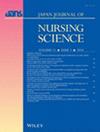Experiences and care needs of post-discharge patients who underwent cardiac surgery: A qualitative study
Abstract
Aim
This study clarifies the physical, psychological, and social forms of distress in, and care needs of, cardiac surgery patients, including optimal times for supporting them in their post-hospital discharge daily lives.
Methods
Semi-structured qualitative interviews were conducted. Participants included 12 adults (11 male and one female, mean age = 66.5 years) who had undergone cardiac surgery, experienced intensive care, and received outpatient care at the first post-discharge visit (around 2 ~ 3 weeks after discharge), around 3 months after discharge, and between 3 months and 1 year after discharge. Verbatim transcripts were analyzed based on similarities and differences for codes based on assessment items, and subcategories and categories were generated.
Results
After surgery, patients experienced physical, psychological, and social distress. First, they experienced physical pain shortly after discharge. Moreover, as they recovered at home, a gap between their sense of their recovery and the perceptions of those around them about their recovery often persisted, which led to psychological and social distress. Patients gained a sense of safety through “assurance of physical recovery” and security through “shared subjective distress.”
Conclusions
Post-cardiac surgery patients seek reassurance and safety by sharing experiences owing to daily life distress. Our findings could help provide better support to meet the care needs of such patients.

 求助内容:
求助内容: 应助结果提醒方式:
应助结果提醒方式:


